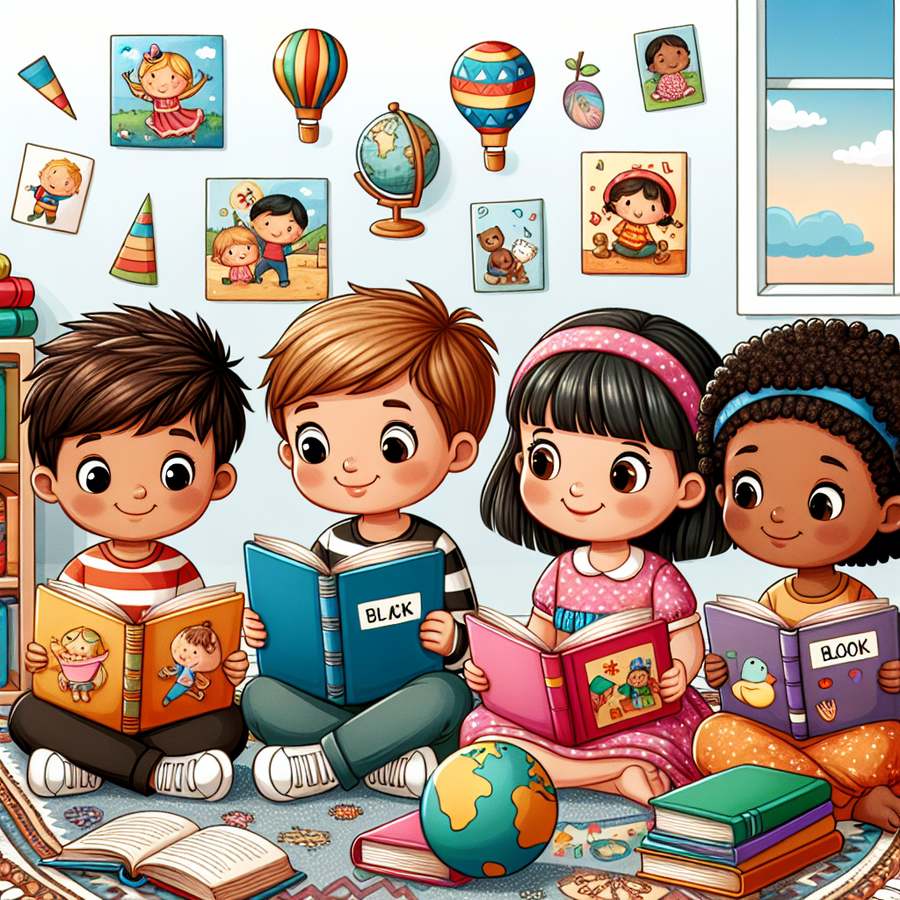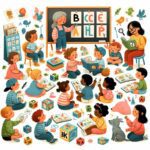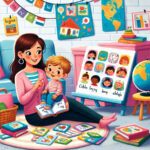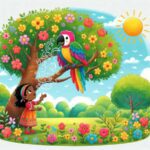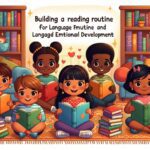Welcome to our deep dive into selecting age-appropriate baby books, a journey not just about picking up any colorful book off the shelf but understanding what resonates with your baby’s ever-growing mind and curiosity. As a parent, I’ve navigated the sea of books, looking for those that not only entertain but educate and nurture. Let me share with you what I’ve learned, embedding wisdom, personal anecdotes, and a sprinkle of science into our exploration.
Before we embark, let’s quickly glance through some key takeaways. Selecting age-appropriate baby books is essential for cognitive and language development, fostering a love for reading early on, and choosing books that match your baby’s developmental milestones can significantly enhance learning experiences.
Why Are Age-Appropriate Books Important for Babies?
Age-appropriate books are more than just stories; they are tools that help in the cognitive development and emotional bonding of your child. Reading to your baby promotes listening skills, increases the number of vocabulary words they are exposed to, and helps in understanding the world around them. The right book at the right time can be a gateway to a lifelong love of reading.
From my journey, I observed my little one’s reaction to different books as he grew. The brightly colored, simple picture books that fascinated him as an infant gave way to more complex stories that we could talk about as he grew older. This evolution in reading material mirrored his developmental milestones, a testament to the impact of choosing books designed for specific ages.
How to Start Selecting Age-Appropriate Baby Books?
Starting your baby’s library can seem daunting with so many options out there. My first piece of advice? Look for books that match your baby’s visual and cognitive development stages. Newborns prefer high-contrast images, so books with black and white patterns are ideal. As babies grow, they start to appreciate colors, textures, and shapes. Books that incorporate these elements, along with simple storylines or rhymes, capture their attention and stimulate learning.
Another tip is to consider books with interactive elements like lift-the-flap, touch-and-feel, or sound buttons. These not only entertain but also encourage fine motor skills and cause-and-effect learning. And don’t forget, the sound of your voice is incredibly soothing and engaging to your baby, so choose books that you’ll enjoy reading aloud.
What Are the Benefits of Reading to Your Baby?
Reading to your baby has countless benefits. It strengthens the bond between you and your baby, supports listening skills, and builds vocabulary. But beyond these widely known facts, reading introduces concepts such as numbers, letters, colors, and shapes in a fun and engaging way. It also supports memory and attention span development, setting the foundation for lifelong learning.
Personally, bedtime stories have become a sacred ritual in our home. They are not just for winding down from the day but a special time for bonding and nurturing a safe, loving environment. Each book we share is a building block in the fortress of language and emotional skills that will support him throughout life.
Selecting Age-Appropriate Baby Books: Where to Begin?
Selecting age-appropriate baby books starts with understanding your baby’s developmental stage. For newborns and young infants, books with high-contrast images and tactile elements are ideal. As your child begins to babble and mimic sounds, look for books that are rich in rhyme and repetition. This not only entertains them but also aids in language development.
It’s also valuable to incorporate books that reflect everyday life. Books about animals, family, or daily routines can help your baby make connections between what they see in books and the world around them. Remember, the goal is to foster a love for reading, so follow your baby’s lead. If they’re fascinated by a particular book, even if it’s slightly beyond their recommended age range, it’s okay to explore it together.
For further exploration on nurturing your child’s developmental milestones through books, consider reading about Building a Reading Routine for Language and Emotional Development, The Role of Music in Infant Brain Development, or Early Literacy Activities for Pre-verbal Toddlers from our library.
Remember, the journey of introducing books to your baby is as much about nurturing a bond as it is about education. Selecting age-appropriate baby books is an art that blends knowledge of developmental stages with the unique interests and personality of your child. It’s a journey that, while sometimes challenging, is incredibly rewarding and fun. Happy reading!

